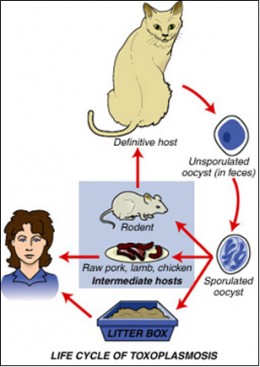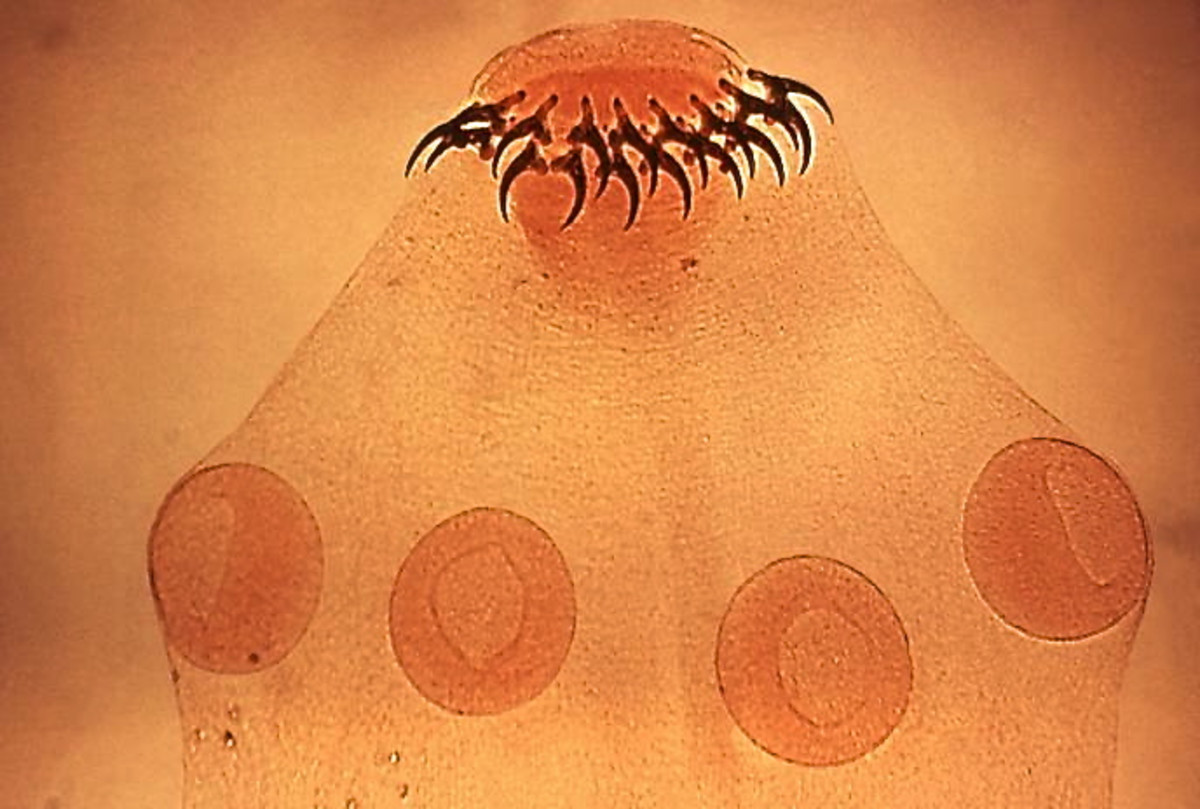Toxoplasma gondii Parasite is a Concern
Be Aware and Be Alert!

Be Aware - Be Alert!
Study Links T. gondii Parasite to Suicide Risk
It was thought Toxoplasma gondii – (T. gondii) infections are generally benign, with no symptoms or consequences. Research is changing this body of information. As noted in my book, “Eyes Wide Shut: An Enigma,” researchers are discovering a greater influence in infected humans. The Examiner ( http://www.examiner.com/article/bad-kitty-how-cats-may-affect-your-mental-health ) “In a study of over 45,000 Danish mothers, infected patients were one and a half times more likely to attempt suicide than those not infected.” The women were tracked for more than 10 years. This most recent study builds upon prior studies a growing consensus of a possible cause and effect.
Infected women were about 50 percent more likely to cut, burn or otherwise harm themselves, according to their medical records, and 80 percent more likely to attempt suicide. The higher their infection, the more the suicide attempts.
Dr. Robert Yolken, an infectious disease expert at Johns Hopkins University in Baltimore, states, “…although the study focused on women, there's no reason to believe the results would be any different in men.”
T. gondii is Linked to Rodent Suicides
There is already a suicide relationship between rodents and cats. The T. gondii parasite causes a rat to commit suicide when infected. The infected rat is attracted to cats and thereby completing the T. gondii life cycle when ingested. The parasite must live in a cat’s intestine to reproduce.
T. gondii has Been Linked to Schizophrenia and Bipolar
A team from the University of Leeds Faculty of Biological Sciences (UK) has shown that the T. gondii parasite may play a role in the development ofSchizophrenia and Bipolar disorders by affecting the production of dopamine – the chemical that relays messages in the brain controlling aspects of movement, cognition and behavior.
T. gondii Produces Dopamine
“In addition, the ability of the parasite to make dopamine implies a potential link with other neurological conditions such as Parkinson’s Disease, Tourette’s syndrome and attention deficit disorders,” says Dr. Glenn McConkey, lead researcher from the University of Leeds Faculty of Biological Sciences (UK).
T. gondii is Everywhere
T. gondii comes from cat feces and raw or undercooked meat. It is a common parasite. Most of the world’s warm-blooded animals and humans are infected. Whales, sea lions, and birds are included.
Most infected people are healthy. Those who are infected with the parasite T. gondii and are immune-suppressed – and particularly for pregnant women – there are significant health risks that can occasionally be fatal.
There is no Cure!
Treatments are available. Consult your doctor. It is possible to be re-infected with this parasite. Cats become more infectiousness each time they are infected. Healthy bodies develop a homeostasis where the T. gondii is latent - with no apparent side effects.







